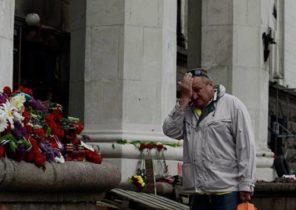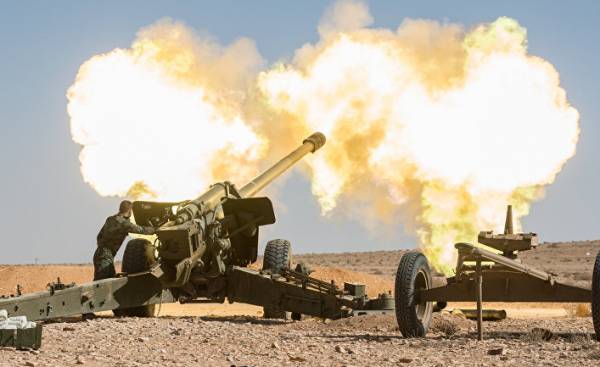
London — 50 years after the six day war, marked the beginning of the Israeli occupation of East Jerusalem and the West Bank of the river Jordan, the middle East remains a region where crisis seems to be eternal. And so it is not surprising that the demands of the region, politicians, diplomats, donors and the humanitarian community generally work on the principle of the here and now. But if we ever want to break the vicious circle of crises in the modern middle East, we must not lose sight of the future. And we should note four trends that now give rise to a new set of challenges for the coming decade.
The first trend concerns the Levant. The post-Ottoman order, which arose a century ago and based on secular Arab nationalism, has collapsed. Two States that gave this system the weight of Iraq and Syria, lost the Central government, they will remain politically fragmented and socially divided countries for at least one generation.
In Lebanon, the polarization remains a key characteristic of political life. Jordan has reached the limit of reception, but the flow of people continues, creating increased pressure on the limited resources of the country. In the Israeli-Palestinian conflict in sight new initiatives or circumstances that would break the deadlock.
The middle East can certainly expect the continuation of the process of resettlement of large masses of people, first in the more peaceful areas in the region, and then in many cases beyond it, primarily in Europe. In addition, the region is likely to face increased struggle for national identity and, perhaps, even with the redrawing of borders — a process that could trigger further confrontation.
The second important trend is associated with North Africa. The most populous States in the region — Algeria, Egypt and Morocco will be able to maintain social and political order that has developed over the past six decades of post-colonial history. The ruling structure of these countries rely on a wide national consent and the support of major institutions, for example labor and farmer unions. In addition, they have at their disposal effective means of enforcement, which serves as a basis of comparative stability.
But this does not guarantee that governments relaxing swim. On the contrary, they are doomed to solve the problem of a powerful youth demographic explosion: in the period up to 2025 in the domestic labor market of the countries of North Africa will be more than 100 million people under 30 years of age. The vast majority of these young people are products of poor education system, so they will absolutely not ready to get jobs, giving a chance for social mobility.
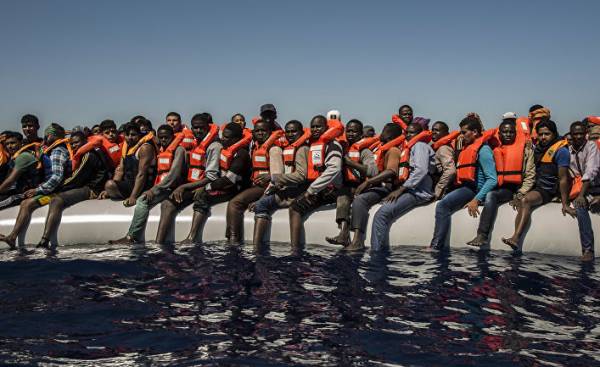 © AP Photo, Santi PalaciosМигранты waiting for evacuation in the Mediterranean sea
© AP Photo, Santi PalaciosМигранты waiting for evacuation in the Mediterranean sea
The most suitable economic sectors for the employment of this Arab youth are tourism, construction and agriculture. But a thriving tourist sectors in these countries do not have, primarily due to the rise of militant Islamism, which will face North Africa attacks for many years.
In addition, the reduction of the share in the European food market and reducing real estate investment opportunities reduce agricultural and construction enterprises to employ young people. Thus, the probable impact of the youth demographic explosion in North Africa will be one of renewed social unrest and potentially significant migration flow to Europe.
More recently, the Gulf States played the role of a regional safety valve. For half a century the countries of the Gulf employ millions of workers, primarily immigrants from lower middle class neighbouring Arab States. Gulf countries were also the main source of investment capital, not to mention the tens of billions of dollars of remittances sent by migrants to their homeland. Finally, many Arab States perceive Gulf countries as lenders of last resort.
However — and this is the third key trend — the economy of the Gulf is going through the upgrade process, its place in various industrial value chains increases. As a result, reduced these countries ‘ dependence on low-skilled foreign workers. In the coming years, Gulf countries, is expected to become less import workers from other countries of the Arab world and reduce the volume of export of capital to these countries.
In the Gulf States may even be increasing destabilization. Several Gulf countries and Iran are involved in an almost sectarian proxy war in Yemen in the foreseeable future will not stop. And recently five of the Sunni powers were United against one of their own — against Qatar, which conducted its own regional policy for several decades. The tension in the South of the Arabian Peninsula, could spark a new political crisis.
They become even more likely because of the growing within these countries, demands for reform from the technologically advanced and globally integrated young citizens. To reform social and political structures that existed for centuries, it will be as difficult as it is necessary.
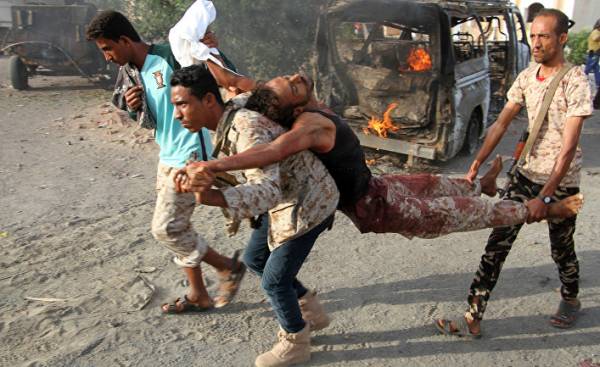 © AFP 2017, Saleh AL ObeidiМесто terrorist attack in the city of Lahj in southern Yemen
© AFP 2017, Saleh AL ObeidiМесто terrorist attack in the city of Lahj in southern Yemen
The fourth trend concerns all the countries of the Arab world and Iran and Turkey: the social role of religion is becoming increasingly contentious issue. War and the crises of the past six years, canceled a significant part of the progress that has been made political Islam in the decade preceding the so-called “Arab spring” of 2011. And since, on the one hand, radicalism penetrates deeper and deeper, and on the other hand, young Muslims are beginning to defend their enlightened understanding of religion, the battle for the soul of Islam is becoming more violent.
All the problems caused by these four trends, the leaders of the countries inside and outside the Arab world cannot be solved at the same time, especially when the West is gaining momentum populism and nationalism. But the act can and should be. The important thing is to focus on socio-economic issues rather than geopolitics.
The West should not succumb to illusions about the prospects of the redrawing of borders or the creation of new countries. The fruit of such efforts will only become a disaster. There is one promising option is to develop a full — fledged Marshall Plan for Arab countries. But in our time the policy of reducing government spending in many Western countries there are no resources, and certainly public support for such a project. In any case, most of the Arab countries today are not able to use such plan in full.
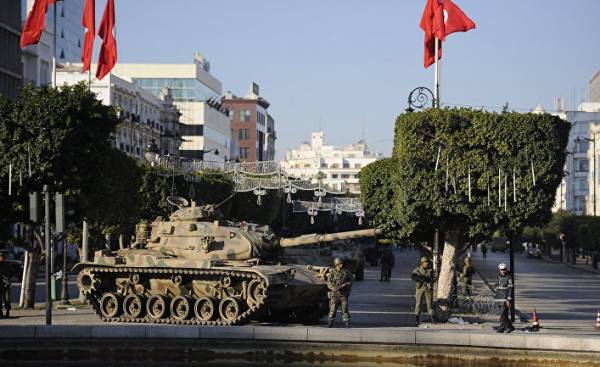 © AFP 2016, Fred DufourСолдаты near the tank on the street of Tunisia
© AFP 2016, Fred DufourСолдаты near the tank on the street of Tunisia
However, leaders both inside and outside the region, it is possible to do large-scale, well-designed investments in primary and secondary education in small and medium businesses (the backbone of the economy in Arab countries), renewable energy (they can be a support for improving regional value chains).
This programme will not stop the collapse of modern Arab States in the Levant, does not establish long-term social contract in North Africa and, of course, will not reconcile the religious with the secular. But, mitigating socio-economic discontent of the youth, this program will allow you to prevent many negative long-term consequences of these trends.


